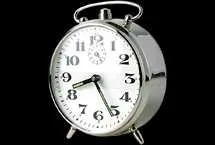About NIS 14M of the total savings came from the household sector, mainly from the reduced reliance on electricity
Yechezkel Daskal, director general of the Federation of Israeli Chambers of Commerce, said last week that daylight savings time which ended at midnight last Saturday, generated some NIS 70 million in saving for the local economy through a combination of lower electricity consumption, increased worker productivity and a rise in sales.
According to the Manufacturers Association of Israel, about NIS 14M of the total savings came from the household sector, mainly from the reduced reliance on electricity.
Daylight Savings Time in Israel begins each year on the last Friday before April 2 when clocks are pushed ahead one hour at 2:00 a.m. and ends on the Saturday night between Rosh Hashana (Jewish New Year) and Yom Kippur when clocks roll back from 2:00 a.m to 1:00 a.m.
Daylight Saving Time (DST) is the practice of turning the clock ahead as warmer weather approaches and back as it becomes colder again so that people will have one more hour of daylight in the afternoon and evening during the warmer season of the year.
Daskal: Daylight savings time saved economy NIS 70m
About NIS 14M of the total savings came from the household sector, mainly from the reduced reliance on electricity
00:00 ,17.09.2007
-
Found it useful? Share
-
Share on Facebook
-
Share on X
-
Share on LinkedIn
-
Share via Email
-
Share on WhatsApp
-
Print Article
Related
 10.09.2007
10.09.2007
Committee of inquiry following mid – sea collision
 10.09.2007
10.09.2007
Zim: new setup in 3 major lines
 10.09.2007
10.09.2007
Zim to spend $1.36 billion on 8 new mega container ships
 10.09.2007
10.09.2007
Israel's new private port marked the entry of the first ship
 10.09.2007
10.09.2007
Export Institute: 10% more exports in 2007 compared to 2006
 10.09.2007
10.09.2007
Fedex – the fastest express service in Israel


